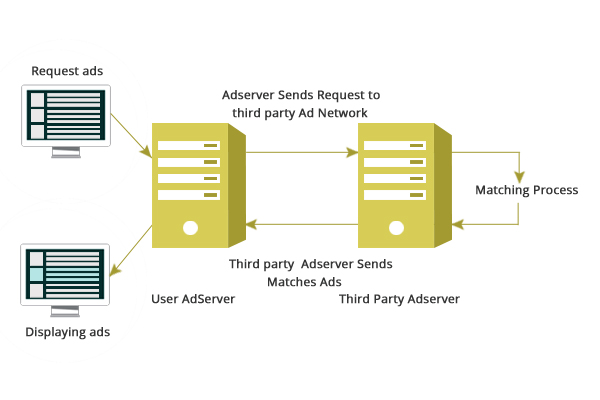- info@djaxadserver.com
- +1 408 786 5525
What is a third-party adserver?
Understanding of third party ad server and its pursuits
An advertising technology that store, manage, and deliver the online ad campaign is called as third party ad server. It enables the advertisers to analyze the performance of third party ads and provide the report on impressions, clicks, and leads made on the advertisement.

What is a third party ad server?
The third party ad server is a web server owned by ad agency or advertisers to publish the ads independently without depending on the publisher ad server for uploading the ad creative.
The publisher ad server holds the third party ad tag and every time when the publisher website is visited, the third party ad tag redirect to third party ad server to deliver the advertisement on the website.
The third party ads are tailored for a specific user based on the determined characteristics and customer interests.
The publisher ad server will not store the third party ads in web cache and ensures every time the ads are displayed through the third party ad server.
The third party ad server tracks the performance of the advertising campaign and produces reports on impression, clicks, and conversions made on the third party advertisements.
To publish the third party ads, the advertiser has to upload the banner in the third party ad server and the publisher has to host the third-party ad tags in publisher ad server.
How does a third party ad server work?
Third-party ad server follows below steps in ad serving.
For example: If a user enters dJAXadserver.com in the browser, the browser triggers the dJAX web server.
The dJAX web server responds with the third-party ad tag.
The user browser again requests the third party ad server for full ad tag to obtain media files and other references.
The third party ad server replies with references to media files and store third party cookie in the visitor browser.
The browser requests the media file and the web page loads with creative containing image, video, or flash.
The cookie in the visitor browser allows the third party ad server to track the unique impression, clicks, and conversions made on the third party advertisements
The cookie also allows the third party ad server to collect the data on the frequency of an advertisement displayed on the particular browser.
The cookie remembers the web pages visited on the website and allows the third party ad server to display the sequence of ads in an order on each web page.